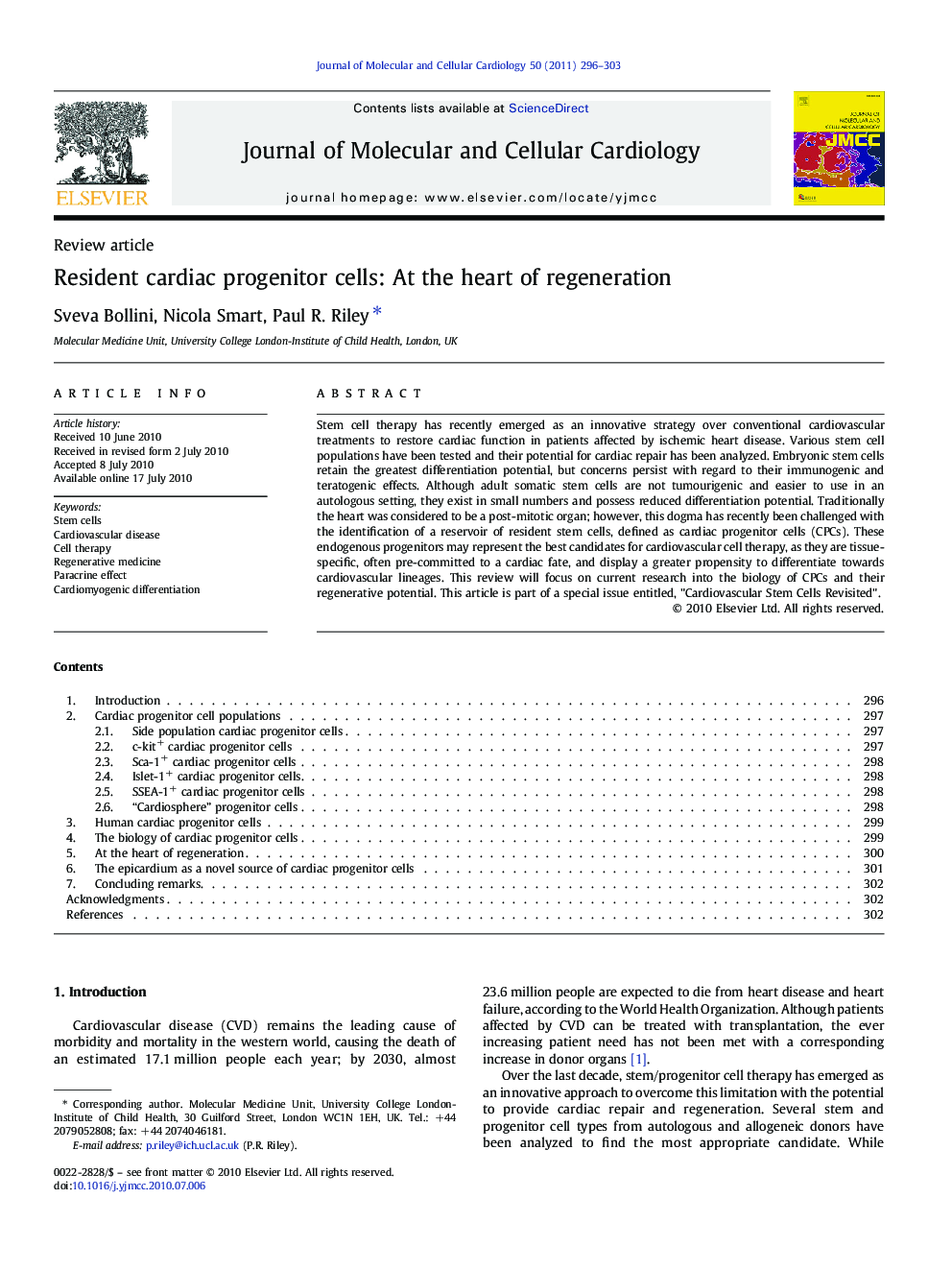| Article ID | Journal | Published Year | Pages | File Type |
|---|---|---|---|---|
| 10953956 | Journal of Molecular and Cellular Cardiology | 2011 | 8 Pages |
Abstract
Stem cell therapy has recently emerged as an innovative strategy over conventional cardiovascular treatments to restore cardiac function in patients affected by ischemic heart disease. Various stem cell populations have been tested and their potential for cardiac repair has been analyzed. Embryonic stem cells retain the greatest differentiation potential, but concerns persist with regard to their immunogenic and teratogenic effects. Although adult somatic stem cells are not tumourigenic and easier to use in an autologous setting, they exist in small numbers and possess reduced differentiation potential. Traditionally the heart was considered to be a post-mitotic organ; however, this dogma has recently been challenged with the identification of a reservoir of resident stem cells, defined as cardiac progenitor cells (CPCs). These endogenous progenitors may represent the best candidates for cardiovascular cell therapy, as they are tissue-specific, often pre-committed to a cardiac fate, and display a greater propensity to differentiate towards cardiovascular lineages. This review will focus on current research into the biology of CPCs and their regenerative potential. This article is part of a special issue entitled, "Cardiovascular Stem Cells Revisited".
Keywords
Related Topics
Life Sciences
Biochemistry, Genetics and Molecular Biology
Cell Biology
Authors
Sveva Bollini, Nicola Smart, Paul R. Riley,
